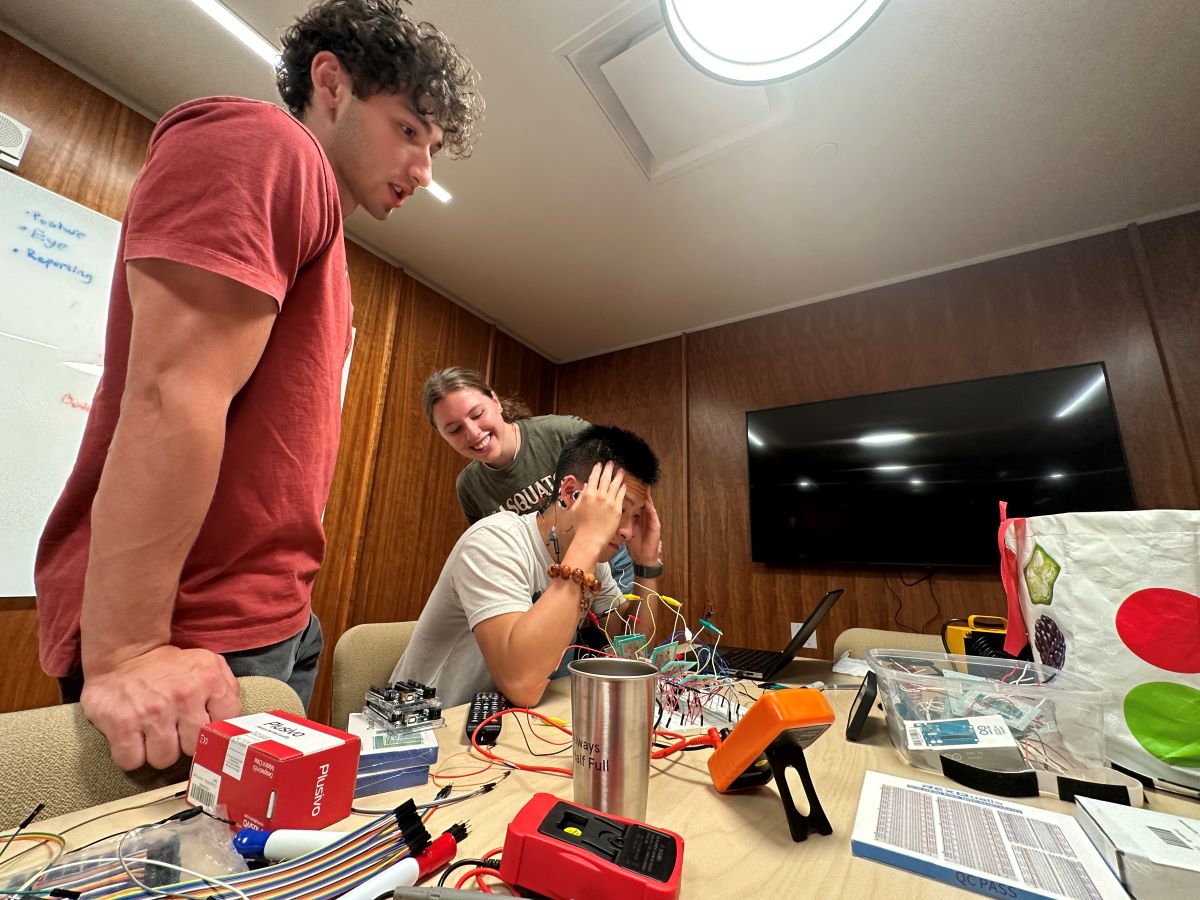Many founders can say their startup was built with blood, sweat and tears. But for Orbit Technologies cofounder Steven Pang, it was batteries, dining hall salt and sponges.
“We literally went down to Safeway, the grocery store near our university, got a bunch of nine-volt batteries and sponges, took some salt from the cafeteria to make electrodes and we started building,” Pang told Technical.ly.
Pang, a 19-year-old sophomore and computer science major at Georgetown University, created an immersive neurostimulation tech company with CTO and cofounder Colton El-Habr. Orbit, which just raised $500,000 in pre-seed funds from Dune Ventures, built a non-invasive device that gets placed behind users’ ears. With electrical stimulation to the brain, users feel like they’re fully immersed in a video game, TV show, video or other media.
Pang told Technical.ly that he first got the idea from reading neuroscience journals in his spare time. One publication explored the idea that it is possible to electrically stimulate the brain’s movement centers without plugging anything into the head — but cautioned that creating a commercial company wouldn’t be possible. After experimenting with the aforementioned materials, Pang and El-Habr solved some of the problems mentioned in the piece and set out to build a startup in February 2023.
According to Pang, typically, chemicals move around in the brain and create electricity. When Orbit sends artificial electrical signals to the brain’s vestibular system, simulating the patterns a brain would normally make during movement, the brain thinks the signals are real. Users thus feel illusions of movement, so they think they’re flying or spinning even while they remain stationary. Paired with games and movies, users feel like they’re really there.
While similar to VR, Pang said this technology is much more immersive.
“We really like games that really suck us into the world,” Pang said. “This kind of blurs the line between real life and something that’s virtual, which is pretty much the best we could get.”
One of the first prototypes was the size of a table, but Pang said the tech is reduced to about the size of two thumbs together. The company is continuing to reduce the size until it will fit behind an ear. So far, he said, most of the prototypes have been “super scrappy” because the team hasn’t had the funds to properly build and currently operates out of Pang’s dorm room.
Orbit first received $15,000 from Georgetown last semester. It won second place and the People’s Choice Award at the university’s Bark Tank competition in October, receiving $30,000. With the funding from Dune, he said the team will be moving out of the dorm into a proper workspace with new equipment, as well as hiring a few new team members. He hopes this can fast-track a presale consumer launch in March or April, followed by a Series A.
Longer-term, he’s hoping to build a full slate of non-invasive neurotechnology products because he sees huge opportunities in the market. In the not-too-distant future, he’s predicting the ability to communicate with friends or turn off a light with just a thought.
Until then, he and El-Habr plan to keep moving forward and working in the space.
“The way a startup dies is [they] either give up or they run out of money,” Pang said. “And since we’ll never give up, the only way we could really die is if we run out of money. “







